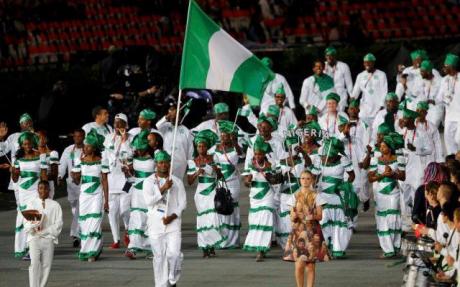Introduction
Nigeria’s participation in the inaugural All-African Games, held in Brazzaville, Republic of Congo, from 18–25 July 1965 (not 1963, as often misreported), represented a milestone in African sporting and political history. For Nigeria, barely five years after independence in 1960, the event was more than an athletic competition. It symbolised a young nation’s ambition to claim its place in continental affairs, foster African unity, and showcase talent at a time when sport was tied to diplomacy and postcolonial identity.
Historical Context: Origins of the All-African Games
The All-African Games arose from the pan-African movement of the 1960s, when newly independent states sought common platforms to assert autonomy and solidarity. African leaders and sports administrators had long envisaged a continental sporting festival, but logistical, financial, and political obstacles delayed its realisation.
The concept gained traction after the formation of the Organisation of African Unity (OAU) in 1963, which reinforced calls for cooperation across the continent. Sport was seen as a powerful tool for uniting diverse peoples, affirming independence, and countering Cold War-era divisions. Brazzaville, under the leadership of President Alphonse Massamba-Débat, was selected as host city, symbolising francophone Africa’s readiness to lead such initiatives.
Nigeria’s Preparation and Delegation
Nigeria viewed the Games as an opportunity to strengthen its influence in continental affairs and invested heavily in preparation. The Nigerian Olympic Committee (founded in 1951), in collaboration with national sports federations, oversaw athlete selection and training.
- Training camps were established in Lagos, Ibadan, and Kaduna.
- Both Nigerian and expatriate coaches provided intensive preparation.
- Government support, supplemented by private contributions, reflected national pride attached to the Games.
The Nigerian delegation included athletes from track and field, boxing, and football, reflecting areas of comparative strength. Sports administrators who had previously managed Nigeria’s Commonwealth and Olympic participation brought organisational experience to the effort.

Nigerian Achievements at the Games
Nigeria’s athletes delivered notable performances that cemented the country’s sporting reputation.
- Track and Field: Nigerian sprinters and jumpers excelled, signalling the emergence of the nation as a future powerhouse in African athletics. Middle-distance runners also displayed promise, setting national standards.
- Boxing: Nigerian boxers performed impressively, building the foundations for what would become one of the country’s most successful Olympic sports in subsequent decades.
- Football: The Nigerian football team’s participation, though not resulting in victory, offered invaluable international exposure. The experience contributed to the sport’s development, culminating in Nigeria’s later triumphs, including Olympic gold in 1996.
These achievements were significant in shaping Nigeria’s confidence in international sporting arenas and provided valuable experience for athletes who later became coaches and mentors.
EXPLORE: Nigerian Civil War
Organisational and Logistical Challenges
Nigeria’s participation was not without hurdles. Air travel across Africa remained limited in the early 1960s, and transporting athletes and officials to Brazzaville required complex coordination. Equipment shortages, uniform procurement, and medical support were logistical concerns.
Despite these challenges, the Nigerian delegation stood out for its professionalism and discipline. The distinctive green-and-white team uniforms became symbols of national pride, reinforcing Nigeria’s identity in the continental sporting community.
Diplomatic and Cultural Significance
Beyond athletics, Nigeria’s participation held diplomatic importance. The Games coincided with broader OAU-led continental initiatives, and Nigerian officials used the event for informal diplomatic engagements.
Nigeria also contributed to the cultural programme, showcasing traditional music, dance, and art alongside sporting talent. This reinforced the pan-African emphasis on celebrating cultural diversity and identity.
Impact on Nigerian Sports Development
Participation in the 1965 Games had enduring consequences for Nigeria’s sporting landscape:
- Athlete Development: Nigerian athletes gained exposure to continental competition, which raised standards of training and performance.
- Sports Policy: The federal government increased investments in sports infrastructure and talent development, recognising its potential for diplomacy and unity.
- Knowledge Transfer: Athletes from 1965 later became coaches and administrators, shaping the future of Nigerian sport.
The experience highlighted gaps in training facilities and coaching expertise, prompting subsequent reforms that strengthened Nigerian sport in the 1970s and beyond.
Legacy of the 1965 Games for Nigeria and Africa
Nigeria’s participation influenced both national and continental sporting traditions.
- It set a standard for professional preparation and team organisation, influencing other African states.
- It reinforced Nigeria’s reputation as a continental sporting leader, paving the way for later successes in athletics and football.
- It advanced the pan-African vision, showing how sport could foster unity, diplomacy, and cultural pride.
Contemporary Relevance
The legacy of Nigeria’s participation in the first All-African Games remains relevant today. The Games helped establish institutional frameworks for managing international competition, which continue to guide Nigerian sports policy.
The experience also shaped Nigeria’s broader identity as a sporting nation, one whose athletes became central to the continent’s representation in global competitions. Importantly, the Games illustrated the potential of sport as a vehicle for nation-building and diplomacy, lessons still pertinent in Nigeria’s engagement with Africa and the wider world.
READ MORE: Ancient & Pre-Colonial Nigeria
Author’s Note
Nigeria’s involvement in the inaugural All-African Games in Brazzaville was a defining moment in both national sporting history and pan-African solidarity. The Games provided a platform for athletic excellence while advancing cultural exchange, diplomacy, and continental cooperation. They revealed the role of sport as a tool for unity and identity in postcolonial Africa and laid the groundwork for Nigeria’s later successes in athletics, football, and boxing. More than sixty years later, the lessons from 1965 continue to shape Nigeria’s sporting policies and its continental leadership.
References
- Njororai, W. W. S. (2010). Africa’s Olympic experience: The Games and Africa’s quest for recognition. International Journal of the History of Sport, 27(5).
- Alegi, P. (2010). African Soccerscapes: How a Continent Changed the World’s Game. Ohio University Press.
- Guttmann, A. (2002). The Olympics: A History of the Modern Games. University of Illinois Press.

